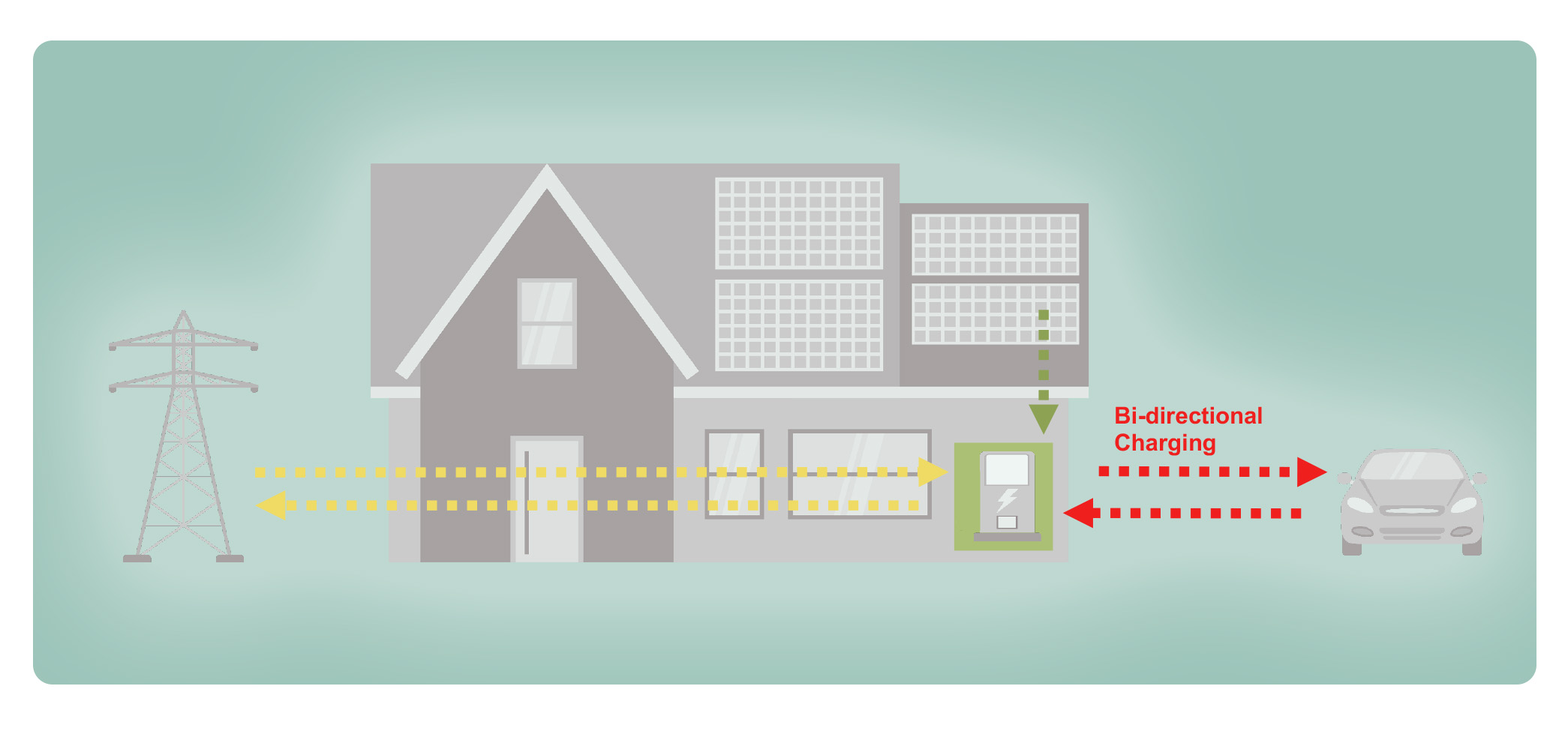 Mit bidirektionalem Laden wird Solarstrom aus der Photovoltaikanlage in Elektroautos und Hausbatterien gespeichert und in den Abendstunden oder bei Bedarf für den Betrieb von Haushaltsgeräten ins Heimnetz zurückgespeist. INFINEON
Mit bidirektionalem Laden wird Solarstrom aus der Photovoltaikanlage in Elektroautos und Hausbatterien gespeichert und in den Abendstunden oder bei Bedarf für den Betrieb von Haushaltsgeräten ins Heimnetz zurückgespeist. INFINEON
Infineon Technologies AG and Delta Electronics, a leading global provider of power supply and energy management solutions from Taiwan, have developed a three-in-one system that integrates solar power system, home storage and charging station. Thanks to bidirectional inverters, the electric car is not only charged, but can become a buffer storage unit to provide emergency power for the home. More and more cars are equipped for this. In the future, bidirectional energy flows can also be used to implement new vehicle-to-home (V2H) and vehicle-to-grid (V2G) solutions.
A single-family home consumes an average of 10-15 kWh of energy per day. A fully charged car battery with a capacity of 30 to 100 kWh could thus theoretically bridge a few days as an emergency power solution. Homeowners thus secure cheap electricity as well as more independence in power supply.
With an output power of about 10 kW, Delta’s new system allows a maximum continuous current of 34 A and achieves peak efficiencies of more than 97.5 percent. Energy-efficient silicon carbide (SiC) power semiconductors from Infineon are used to increase power density. Compared to silicon-based semiconductors, the compound semiconductor SiC reduces energy losses when converting electricity by around half. The size of charging stations can also be reduced by about 30 percent. With SiC, photovoltaic systems become more efficient, charging times at fast-charging stations and wallboxes can be shorter, and the range of electric cars can be increased by five to ten percent. www.infineon.com/green-energy